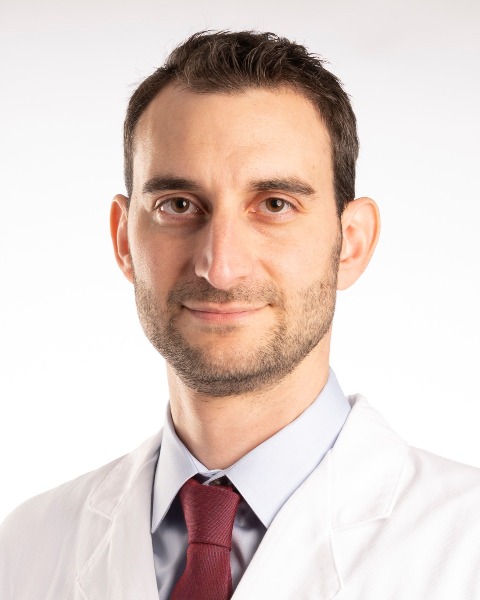Quality
83: Adherence to and outcomes of extended venous thromboembolism prophylaxis after complex gastrointestinal cancer surgery

Michail Mavros, MD (he/him/his)
Assistant Professor of Surgery
University of Arkansas for Medical Sciences
Little Rock, Arkansas, United StatesDisclosure(s): No financial relationships to disclose

Michail Mavros, MD (he/him/his)
Assistant Professor of Surgery
University of Arkansas for Medical Sciences
Little Rock, Arkansas, United StatesDisclosure(s): No financial relationships to disclose
- LJ
Lauren Johnson, MD
General Surgery resident
University of Arkansas for Medical Sciences, United StatesDisclosure information not submitted.
- SO
Sonia Orcutt, MD
Assistant Professor of Surgery
University of Arkansas for Medical Sciences, United StatesDisclosure information not submitted.
- CP
Cheng Peng, MPA, MS, PhD
Assistant Research Professor, Division of Pharmaceutical Evaluation and Policy
University of Arkansas for Medical Sciences, United StatesDisclosure information not submitted.
- BM
Bradley Martin, PharmD, PhD
Professor
University of Arkansas for Medical Sciences, United StatesDisclosure information not submitted.
Abstract Presenter(s)
Author(s)
Clinical guidelines recommend extended venous thromboembolism (VTE) prophylaxis for most cancer patients after major gastrointestinal (GI) operations, however adherence has been low and the clinical outcomes not well defined. We sought to document the adherence to and outcomes of extended VTE prophylaxis after complex GI cancer surgery using a national sample of commercial claims.
Methods:
We conducted a retrospective analysis of a random 10% sample of the 2010-2020 IQVIA LifeLink PharMetrics Plus™ database. This is an administrative claims database representative of the commercially insured population of the United States with respect to age, gender, geographic location, and the type of insurance coverage and includes inpatient and outpatient claims as well as retail and mail order prescription records. We selected cancer patients undergoing major pancreas, liver, gastric, or esophageal surgery. The primary outcomes were 90-day postoperative VTE (defined as deep venous thrombosis [DVT] or pulmonary embolism [PE]) and bleeding (defined as GI, intracranial, or other hemorrhage).
Results:
3,522 patients were identified and 2,096 were eligible for analysis (952 excluded due to discontinuous enrollment, 474 history of VTE/coagulopathy/anticoagulation). 1,514 patients underwent hepatopancreatobiliary surgery (841 pancreas, 673 liver) and 582 gastroesophageal (320 gastric, 262 esophageal). Their median age was 49.2 years (interquartile range 47.2-51.5 years) and 48.4% (n=1,014) were female. During the index hospitalization, 50 patients (2.4%) developed VTE, 59 (2.8%) postoperative bleeding, and 134 (6.4%) were hospitalized for at least 28 days. From the remaining 1,885 patients, extended VTE prophylaxis prescriptions were filled for 151 patients (8.5% for pancreas, 8.2% for liver, 6.4% for gastric, and 7.7% for esophageal cancer), and the most commonly used agent was enoxaparin (96.7% of patients). Post-discharge VTE occurred in 5.1% of patients (6.7% for pancreas, 3.4% for liver, 4.1% for gastric, and 5.8% for esophageal cancer) and bleeding in 5.6% of patients (6.0% for pancreas, 5.3% for liver, 6.0% for gastric, and 4.4% for esophageal cancer). There was no association of extended VTE prophylaxis with the occurrence of post-discharge VTE (7.3% versus 4.9%, p=0.2) or bleeding (4.6% versus 5.7%, p=0.6).
Conclusions:
The vast majority of cancer patients undergoing complex GI surgery did not receive extended VTE prophylaxis according to current guidelines, however their VTE rate was not increased compared to patients who received it.
Learning Objectives:
- describe the adherence rates to current guidelines regarding extended VTE prophylaxis after complex GI cancer surgery
- describe the rates of postoperative VTE and bleeding after complex GI cancer surgery
- discuss the association between extended VTE prophylaxis and VTE/bleeding rates after complex GI cancer surgery
